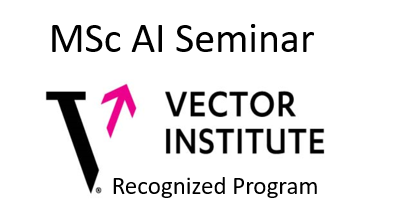Monday, May 29, 2023 - 13:30 to 15:00
SCHOOL OF COMPUTER SCIENCE
The School of Computer Science is pleased to present…
MSc Thesis Defense by: Jaykumar Patel
Date: Monday May 29, 2023
Time: 1:30pm – 3:00pm
Location: Essex Hall, Room 122
Reminders: 1. Two-part attendance mandatory (sign-in sheet, QR Code) 2. Arrive 5-10 minutes prior to event starting - LATECOMERS WILL NOT BE ADMITTED. Note that due to demand, if the room has reached capacity, even if you are "early" admission is not guaranteed. 3. Please be respectful of the presenter by NOT knocking on the door for admittance once the door has been closed whether the presentation has begun or not (If the room is at capacity, overflow is not permitted (ie. sitting on floors) as this is a violation of the Fire Safety code). 4. Be respectful of the decision of the advisor/host of the event if you are not given admittance. The School of Computer Science has numerous events occurring soon
Abstract:
Astronomy has made tremendous progress in recent years thanks to advancements in technology and the development of sophisticated algorithms. One area of interest for astronomers is the classification of galaxy morphology, which involves categorizing galaxies based on their visual appearance. However, with the sheer number of galaxy images available, it would be daunting to classify them all manually. To address this challenge, a novel Residual Neural Network (ResNet) model, called ResNet Var, that can classify galaxy images is proposed in this study. Subsets of the Galaxy Zoo 2 dataset are used in this research, which contains over 28,000 images for the five-class classification task and over 25,000 images for the seven-class classification task. Various metrics such as accuracy, precision, recall, and F1 score were calculated to evaluate the effectiveness of the ResNet Var model. The results were impressive, with the ResNet_Var model outperforming other popular networks such as VGG16, VGG19, Inception, and ResNet50. Specifically, the overall classification accuracy of the ResNet_Var model was 95.35% for the five-class classification task and 93.54% for the seven-class classification task. The potential applications of the ResNet_Var model are vast. By automating the classification process, astronomers can quickly and accurately categorize galaxy images according to their morphology. This, in turn, can help advance our understanding of galaxy formation and evolution and provide valuable insights into the properties of dark matter and the nature of the universe.
Keywords: Astronomy, Morphology, Neural Networks, Galaxy Zoo
MSc Thesis Committee:
Internal Reader: Dr. Saeed Samet
External Reader: Dr. Dan Xiao
Advisor: Dr. Dan Wu
Chair: Dr. Ahmad Biniaz
MSc Thesis Defense Announcement 
5113 Lambton Tower 401 Sunset Ave. Windsor ON, N9B 3P4 (519) 253-3000 Ext. 3716 csgradinfo@uwindsor.ca
